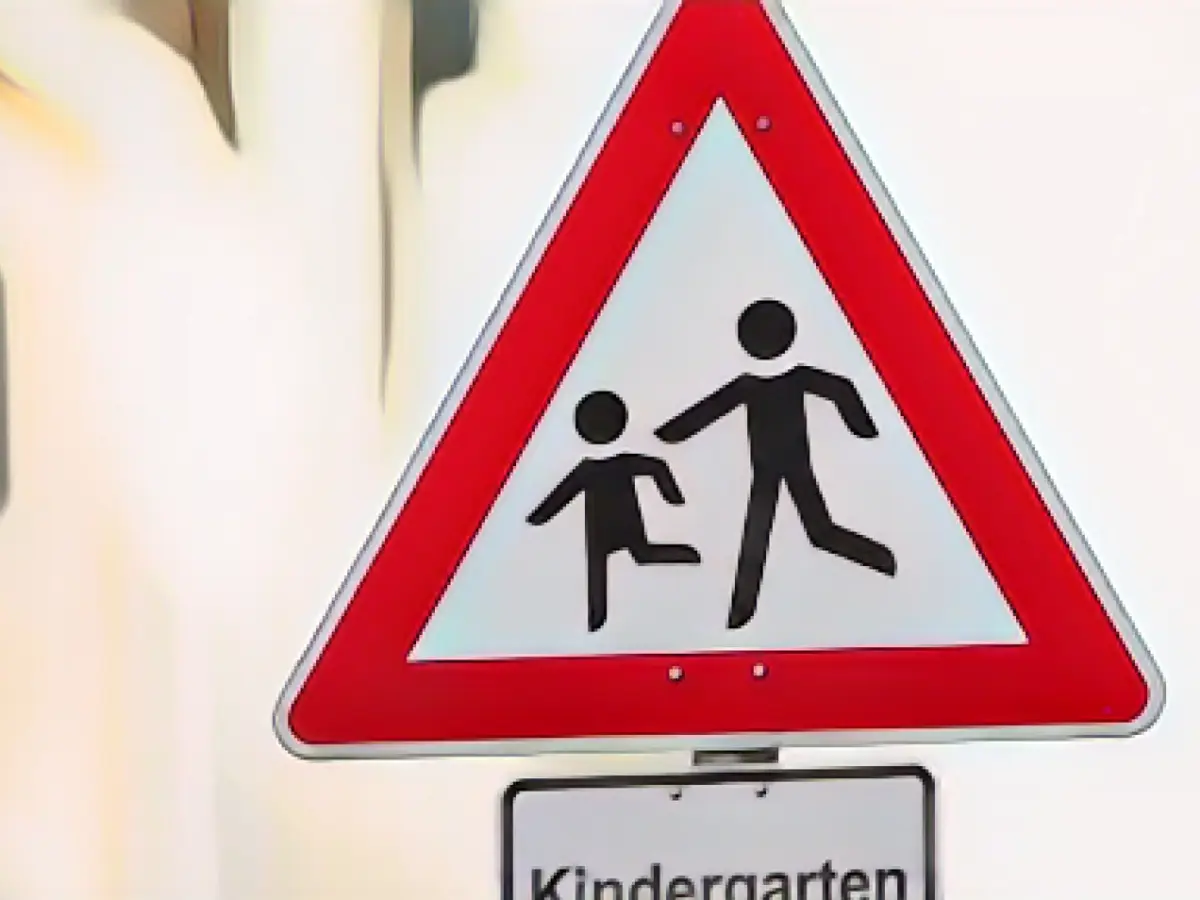Daycare Facilities in MV Set for Change with Smaller Groups and Enhanced Support
The Mecklenburg-Vorpommern state parliament, led by Education Minister Simone Oldenburg of the Left Party, kicked off deliberations on the new state daycare law last Thursday with a protest action by nursery school teachers. The focus of the new law is to boost the specialist staff-to-child ratio in daycare centers from 1:15 to 1:14. With this change, the ministry aims to elevate language support for children, expand opportunities for parental involvement, and equip skilled professionals to supervise smaller groups during off-peak hours, Oldenburg stated.
In front of the state parliament's doors, around 20 nursery school teachers from the Verdi union demonstrated for improved working conditions. While the necessity for comprehensive change is acknowledged, the minister urged caution regarding financial limitations. Improving the childcare ratio alone would require an additional 12 million euros annually, according to Oldenburg, who highlighted that the state is already investing 467 million euros in childcare this year, a 7.8% boost compared to 2022.
Criticisms emerged from parties such as the Alternative for Germany (AfD), led by Enrico Schult, who took issue with the allocation of provided federal childcare funds. In contrast to surrounding states, resources in Mecklenburg-Vorpommern have only been utilized to waive parental costs, according to Schult.
On the opposite end of the spectrum, Jutta Wegner from the Green Party lamented the insufficient reduction of group sizes, which in times of high sickness rates may require one childminder to oversee 19 children. Despite this, the provision of targeted support is often restricted due to time constraints, she argued.
In the Bertelsmann Foundation's latest study, Mecklenburg-Vorpommern lagged behind other states in childcare ratios. Oldenburg attributed this to the region's high standard of childcare and prolonged operating hours of daycare centers. This year, a total of 117,470 children are cared for at daycare facilities or by childminders in Mecklenburg-Vorpommern, with a 59% care rate for children aged 0 to 3 and 94.5% for children aged 3 to 6.
Additional Insights
- Strengthening Educators' Position Some experts propose building on the foundation of teachers' professional growth and increasing their educational qualifications as a means to enhance both the quality of childcare and the status of educators. This could include funding teacher training programs and providing resources for ongoing professional development to help educators navigate challenging situations and increase their overall confidence.
- Cross-Sectoral Collaboration Coordinating efforts among various agencies and services (e.g., health and social services, parenting support programs, and early childhood education) can better equip educators to deliver comprehensive support to children and families. By fostering strong interconnections and breaking down barriers between these other sectors, services can be tailored to meet diverse family needs and promote positive outcomes.
- Investing in Parent-Teacher Partnerships Enhancing opportunities for parent involvement is associated with a range of educational benefits, including improved student motivation, higher academic performance, and strengthened family relationships. This may entail offering workshops and support resources to empower parents, fostering meaningful collaboration between families and educators, and advocating for flexible scheduling to accommodate parents' various work realities.
Although the article does not specify details on these strategies, they can offer insight into the broader landscape of childcare reform in Germany.







